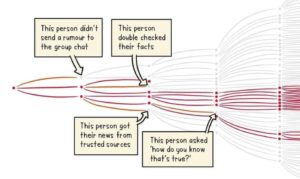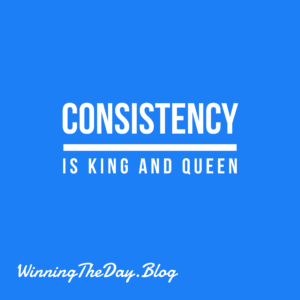“Every Monday Matters.”
This is especially true when it comes to continuous improvement in business. Recently, I’ve been working with a client, listening in on sales calls and conducting role-playing sessions. The insights gained from these activities are truly priceless. But the real magic happens after the activity, during the debrief.
In the business world, “debrief” often carries a negative connotation. It’s frequently associated with mistakes, failures, and blame. This fear-based approach is counterproductive. The U.S. Navy’s Blue Angels flight demonstration squadron offers a powerful alternative perspective.
The Blue Angels, known for their precision and flawless aerial maneuvers, understand the critical importance of debriefing. After every flight—whether a practice session or a public performance—they conduct a thorough debriefing process. Their goal isn’t to assign blame but to identify areas for improvement and drive fear out of the organization.
Why is debriefing so effective?
- Accelerated Learning: Debriefing allows you to extract valuable lessons from every experience, both positive and negative. It transforms experience into expertise.
- Improved Performance: By identifying areas for improvement, you can make adjustments and enhance your performance in future endeavors.
- Enhanced Teamwork: Debriefing fosters open communication and collaboration, strengthening team cohesion.
- Reduced Errors: By analyzing past mistakes, you can prevent them from recurring.
- Increased Confidence: When you consistently learn and improve, you build confidence in your abilities.
How to Conduct an Effective Debrief:
Here are some key principles inspired by the Blue Angels:
- Focus on Facts, Not Blame: Stick to objective observations and avoid assigning blame. For example, instead of saying “You messed up the closing,” try “The closing rate was lower than expected. Let’s analyze the factors that contributed to that.”
- Encourage Open Communication: Create a safe and supportive environment where everyone feels comfortable sharing their perspectives.
- Start with the Positives: Begin by acknowledging what went well. This sets a positive tone and reinforces successful strategies.
- Identify Areas for Improvement: Focus on specific actions that could be improved in the future.
- Create Actionable Steps: Develop concrete steps to implement the identified improvements.
- Document the Learnings: Keep a record of the key takeaways from each debriefing session.
Applying Debriefing to Sales Calls and Role-Playing:
When debriefing sales calls or role-playing sessions, consider these questions:
- What were the strengths of the call/role-play?
- What could have been done differently?
- What specific strategies or techniques were effective?
- What objections or challenges were encountered, and how were they handled?
- What are the key takeaways for future calls/role-plays?
By adopting a structured debriefing process, you can transform every experience into a valuable learning opportunity and propel your business forward. Make every Monday—and every activity—count. And that is how we win the day!








Trust. The speed of trust.
We had tickets to tonight’s doubleheader: Reds vs. the Angels, and I was the designated driver. My family trusted me to drive to get them back and forth safely; in fact, Tim fell asleep in route. That’s trust. Trust is so important in so many ways.
Whether it’s driving my family or friends or working with my associates, clients, and vendors, trust is everything. There’s nothing more impactful on people, their work, and their performance than trust.
Stephen Covey said it best, “You can ignore the principles that govern trust—but they will not ignore you.”
In other news, it was a tough night for the home team.